Colombia Peace Deal Update: Refugees Displaced By Violence Say They'll Never Return
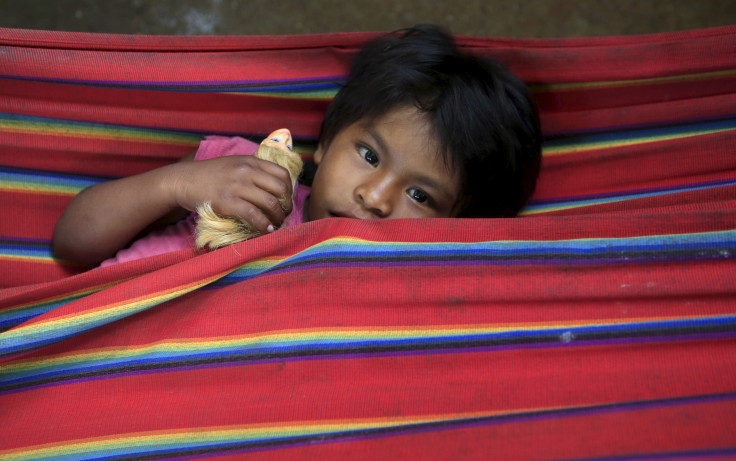
QUITO, Ecuador – A group of Ecuadorian children surrounded Yesenia’s 6-year-old daughter in the playground, taunting her. They pushed her face into the ground. “Dirty Colombian,” they said. "Go back to your country."
It was just one of many incidents of bullying that her children, all under the age of 13, have faced at school since arriving from Colombia in January. They no longer want to go to class and Yesenia, 29, is in a constant state of worry about their well-being. “I have to tell them every day to be strong, to keep their heads up, and that they have to keep going,” she said. “But every day they come home, saying this or that happened. They ask, ‘Why can’t we go back to Colombia? In Colombia this never happened to us.’”
Despite the many difficulties of her new life in Ecuador, Yesenia, who asked to keep her last name private for fear of jeopardizing her family’s safety, is adamant they will never return to her home country. Yesenia is a refugee of Colombia’s 50-year civil war, which has claimed the lives of more than 200,000 people and displaced more than 6 million. Tens of thousands of those fleeing the violence have ended up in neighboring Ecuador, where, despite living with relative peace and stability, many face rampant discrimination that has made it harder for them to find stable employment and fully integrate into society to rebuild their lives.
Colombia’s war is now closer than ever to coming to an end after years of failed attempts at peace. Government representatives and guerrilla fighters from the Revolutionary Armed Forces of Colombia, or FARC, announced in September they were on track to complete a final peace accord to end the war as soon as March 2016. Many of the asylum seekers and refugees living with day-to-day discrimination and often scant wages in Ecuador say their idea of home is still in Colombia, where they have left behind close friends, relatives and better jobs in the wake of the conflict. However, skepticism of the peace process lingers, and many say even if a deal is sealed, it will do nothing to make Colombia a safer place for them to return.
The war, which began in the 1960s as an armed rebellion by insurgents over inequality and land rights, has morphed over the years into the world’s longest-running conflict, with battles waged between FARC fighters, Colombian military forces and paramilitary groups, with civilians caught in the crossfire. It’s produced one of the world’s highest numbers of displaced people, second only to Syria.
Ecuador, Colombia’s neighbor to the south, has for the last decade been the region’s top destination for Colombian refugees, given its stable economy and traditionally generous migration policies. Its 2008 constitution recognizes a "right to migrate" and declares that nobody in the country will be considered illegal because of their status. The estimated 250,000 Colombians that reside in Ecuador as refugees or undocumented immigrants live among Ecuadorians, concentrating in border towns or larger cities like Quito or the coastal metropolis of Guayaquil.
Hidden among their Ecuadorian neighbors, Colombians in the country have often been referred to as an “invisible” population. In Quito, where steep, sloping hills dotted with colorful houses cut across a bustling, traffic-congested city, a casual visitor would see few explicit signs of a Colombian community aside from an occasional restaurant boasting typical Colombian fare. Refugees are often in plain sight in city streets, working in construction jobs or hawking bananas or bottled water by the side of the road, but they’re not immediately identifiable until they reveal an ID card or an accent.
It’s those small giveaways that can cost someone a job opportunity or an apartment lease, as Colombians are often suspected of being drug traffickers, Yesenia said. When her husband tried to search for an apartment, he was repeatedly turned down on the spot, she said. “They’d say, ‘No, you’re Colombian, you shouldn’t be here,’ or, ‘You must be part of the guerrillas.’”
Ecuador has one of the lowest unemployment rates in the region, at just 4.8 percent, but underemployment stands around 40 percent, making competition for stable, well-paying jobs that much harder.
In Colombia, her husband worked as a handyman, primarily fixing doors and windows. So far in Ecuador, the only job he’s been able to sustain is selling coconut juice by the roadside, using the meager income to pay for their family’s rent and food. Yesenia’s children, who all had their own beds in their house in Bogota, now share one bed in a cramped apartment.
Yesenia left her hometown of Buenaventura, a city on Colombia’s coast, in 2008 after criminal gangs targeted her brother, eventually killing him in the nearby city of Cali. She, along with her mother, husband and children, lived in Cali and then Colombia’s capital of Bogota for several years until December, when her mother was threatened by someone affiliated with the same gangs that went after her brother.
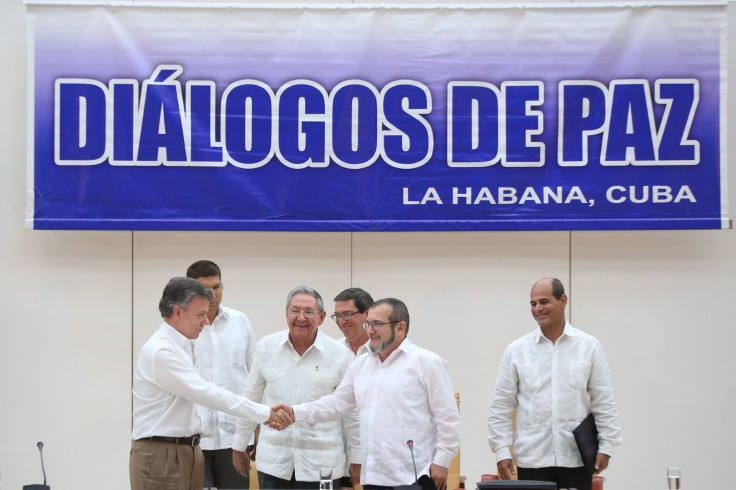
“We knew the paramilitaries were infiltrating displaced people,” she said, cradling her gurgling 7-month-old son, Christopher, in her lap. One day as her mother went to collect government benefits at the local bank, she was threatened by another person in line. “The person at the bank said, 'You escaped from us, now I know where to find you,'" Yesenia recalled.
The entire family immediately left for the border, and decided to board a bus to Quito. With no idea of where to go in Ecuador, they slept overnight in Quito’s bus terminal when they arrived, before approaching a shop owner the next day who directed them to the refugee office.
The incident had already left Yesenia, then seven months pregnant with Christopher, emotionally shattered. She refused to leave the house for two months, terrified that members of the Colombian gangs would track her down again. It’s a fear that she said would never leave her if she were ever to try and return to Colombia.
“If I go back I’ll be okay for some time, but then it will start all over again,” she said. “I don’t think Colombia is a safe place, and I don’t want to be exposed to the violence.”
Under President Juan Manuel Santos, Colombia's government passed a landmark law in 2011 granting land restitution to those forced to leave their homes from the conflict. That program has produced few results so far: Several Colombians have continued to face threats from criminal groups in their hometowns, while others have tried to go back home, only to find no viable infrastructure left. Human rights group Amnesty International reported last year that only 200,000 of 20 million acres of stolen land had been returned to their original owners.
The peace talks, which have been negotiated in Cuba since 2012, only involve the government and FARC guerrillas, not the paramilitary groups that have targeted Yesenia and her family. That’s stoked some worries that those groups could expand their reach once an agreement with the FARC is signed.
Yesenia is also skeptical that the talks will yield a workable accord. "In truth, I don’t think it will do much. I don’t really believe in it," she said.
In the months since she left Colombia, FARC representatives and government officials announced landmark strides in the peace talks. Both sides overcame a critical hurdle in September, announcing that fighters who confessed to their crimes, excluding perpetrators of the most serious atrocities, would be granted amnesty in the form of reparations to victims and short-term work sentences.
That provision is one of the most controversial parts of the agreement so far, and it’s unclear if Colombians will approve the deal when it comes up for public vote, expected in May or June 2016, which is required in order for it to go into effect. With the scale of atrocities during the war, it would be too difficult to come to a fair agreement about how much prison time would be required for those who did perpetrate crimes, Yesenia said. “Whatever the agreement will be, it won’t be enough," she said.
In the meantime, her family is waiting to get an interview to be resettled to a third country, where Yesenia hopes they will live free of discrimination and find stable employment. “I want them to have degrees and have better opportunities than I had because of the Colombian conflict,” she said. “I also hope to live free of fear, to go out of my home without any worries about safety.”
Thousands of Colombian refugees have settled elsewhere in the region, mostly in Venezuela, Colombia’s eastern neighbor, and Panama. Deep discrimination against Colombians has been documented in both countries.
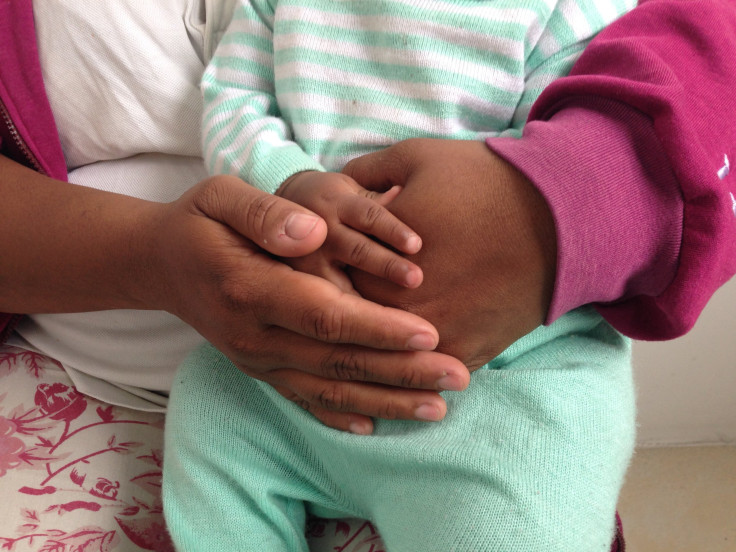
Other Colombians in Ecuador are somewhat more optimistic about the peace process itself. Jhon James, 33, who asked to keep his last name private because his asylum application was still pending, said a peace deal would be “marvelous” for the country if it could pass. “It will attract more investment in Colombia. The country will improve by 100 percent,” he said.
Nevertheless, he said it wouldn’t improve his chances of returning to his hometown, either. He grew up in Buenos Aires, a town in Colombia’s rural Cauca province that he described as rife with left-wing guerrilla fighters and right-wing criminal gangs alike, with a steady stream of illicit drugs and weaponry fueling violence on both sides.
In a nightmarish three-day assault through Cauca in 2001, paramilitary groups shot his brother and raped his sister, both then teenagers, in what was one of the most brutal campaigns in the civil war at the time. It wasn’t the only time his family had been targeted in the conflict: Several of his uncles and cousins are affiliated with Colombia’s military or police forces, which has drawn constant threats against his family since Jhon James was a child.
In May 2014, men identifying themselves as FARC guerrillas came to his mother’s home in Buenos Aires, brandishing weapons, and ordered them to leave or they would set the property on fire.
In Colombia, the insurgency may end, but the criminal activity will endure. Read more… https://t.co/kOOiFljJo7
— Stratfor (@Stratfor) November 13, 2015
“We had to leave right at that moment, abandon it all,” he said. It was then he decided to move to Ecuador, and took a bus across the border to Quito. By then, his siblings had already left the country, eventually getting resettled in Panama, while his mother stayed in the Colombian city of Cali and battled sickle cell anemia.
Criminal gangs would still run rampant in Buenos Aires even if FARC fighters laid down their weapons, he said. Meanwhile, in the year since he arrived in Ecuador, he’s had several rude awakenings with potential employers and landlords.
“Many times, with a Colombian ID card, they say ‘You're Colombian? There's no jobs,’” he said. And when he did happen to be able to land some short-term work, he’s often worked more hours and received less pay than his non-Colombian counterparts. On two separate occasions, he said he spent weeks chasing down elusive employers to collect the wages owed to him.
In Ecuador, Jhon James is far from the brutal conflict that placed his and his family’s life at risk on a regular basis. But it still isn't home.
“Before, I had a girlfriend, I had a house, I had a family,” he said, recalling how his childhood home in Buenos Aires had healthy crops of bananas, yucca and corn, with a river full of fish flowing nearby. “Now in Quito, I’m alone.”
Not everyone is unhappy with life as a refugee in Ecuador. In Lago Agrio, an Amazonian town just outside the Ecuadorian-Colombian border, Juan Carlos Dulcey, 47, and his partner Maria Graciela, found a new purpose for their lives in their adopted country.
Six years after they fled Colombia, following a harrowing incident in which Graciela was raped by a member of one of the criminal groups, they began making money by collecting recyclables in dumpsters and public spaces, trading them in for money. Eventually, along with a handful of other Colombian refugees in Lago Agrio, they organized into a formal program with support from global aid group Oxfam International, working alongside Ecuadorian natives.
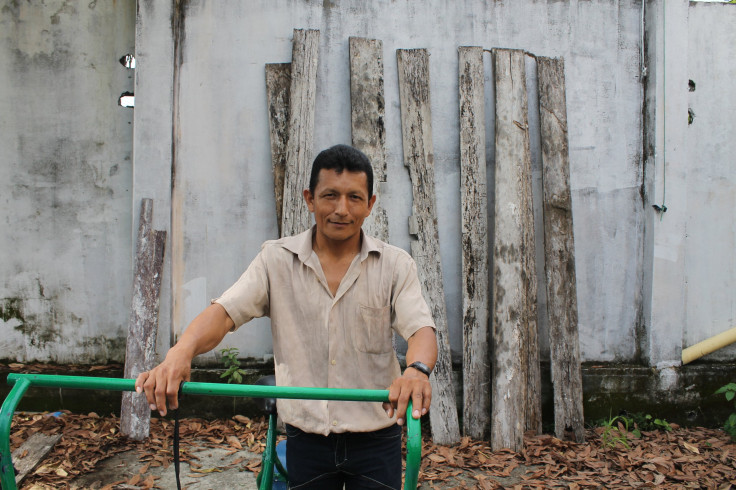
On a recent afternoon, about two dozen employees of the program, seven of them Colombian refugees, gathered in a meeting room in their headquarters in Lago Agrio. Outside the low-slung, peach-colored building, several of their children played out in the front yard, running among the wide carts and bicycles used for hauling plastic bottles and metal scraps.
“Now we’re like entrepreneurs,” Dulcey said. “We want to work. We want to touch the sky.” Working alongside Ecuadorians every day has let them show their colleagues that Colombians are hardworking, trustworthy people, he said.
Life is calmer and safer for them in Ecuador. But Dulcey has strong doubts about the peace process, too. Guerrilla fighters would refuse to give up their arms, even if it was part of a signed agreement, he said. “Until they surrender their weapons, nothing will change,” he said.
Dilmar Verano, 38, another employee at the recycling program, recounted how peace talks had already failed three times since the 1980s. “We don’t trust the process anymore,” he said, noting that even if a deal gets signed this time around, there’s nothing to indicate that it could work. “They can sign whatever they want, but the situation isn’t going to change.”
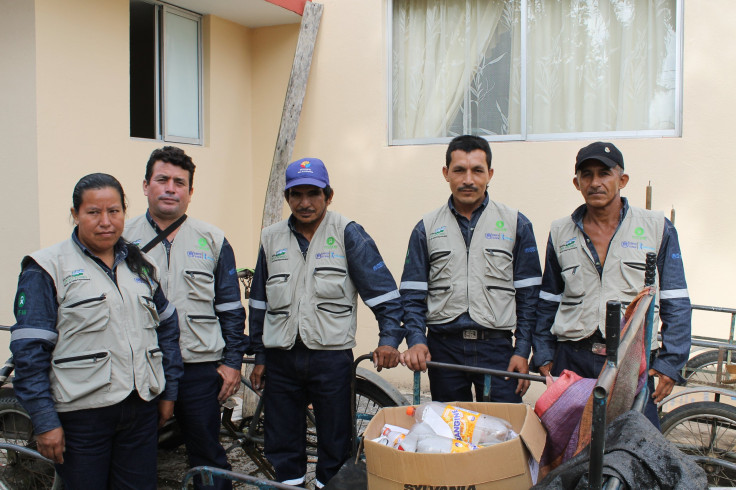
However, he, like Dulcey, is perfectly happy with his new life in Ecuador, where he’s lived for the past six years. No longer does he have to worry that his children might be killed at school or that his family could be in constant danger.
“The most important thing is that we are safe, we’re with family, we’re working and progressing,” he said. “Here, we don’t have to suffer in this war. It’s not our war.”
Brianna Lee reported from Ecuador with support from the International Reporting Project.
© Copyright IBTimes 2024. All rights reserved.






















